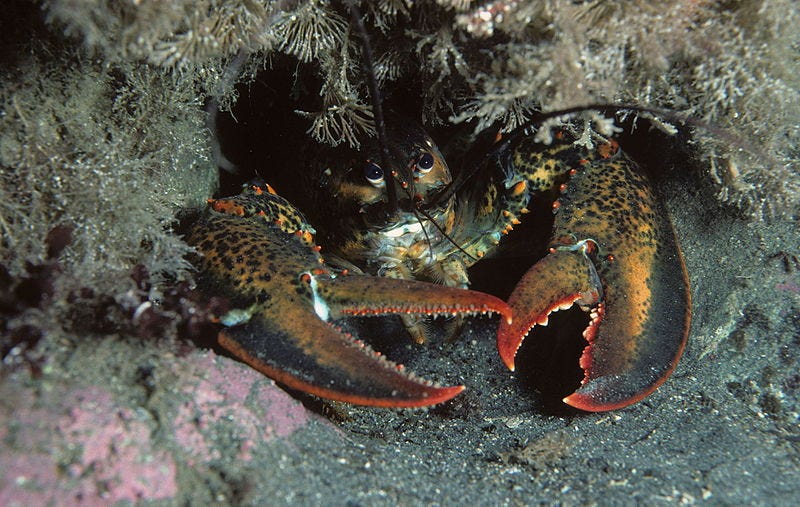Exploring the Lobster Genome: Secrets of Longevity and Cancer Resistance
Written on
Understanding Aging through Animal Models
Geoffrey Rush once remarked on the challenges of aging: it isn’t easy. As we age, our bodies begin to decline in various ways, and understanding the complex processes involved in aging is crucial if we want to slow or prevent these changes.
To approach this issue, researchers focus on the intricate molecular mechanisms that contribute to aging. This includes identifying genetic markers, studying epigenetic modifications and their metabolic interactions, and exploring various enzymatic pathways.
Alternatively, we can examine centenarians to identify common gene variants, lifestyle choices, or physiological traits, such as methionine metabolism, that may contribute to their longevity.
However, human studies are not the only avenue of exploration. Investigating different animal species can also yield valuable insights. Generally, larger animals tend to have longer lifespans due to factors like a slower metabolism, genetic protections against age-related diseases, and enhanced cancer resistance. Interestingly, within species, smaller individuals often outlive their larger counterparts.
Yet, there are exceptions. Some smaller animals, such as naked mole rats, exhibit surprisingly long lifespans, potentially aided by hibernation. Bats, too, are known for their exceptional longevity, utilizing autophagy to resist the effects of aging. Certain fish species also demonstrate remarkable resilience to aging.
The Fascinating Case of the American Lobster
The American lobster (Homarus americanus) presents some intriguing characteristics.

These crustaceans have the remarkable ability to continue growing throughout their lives. Some individuals have been recorded at lengths of up to 1 meter and weights of 20 kg. They grow by molting, and there appears to be no limit to the frequency of this process.
Throughout their life cycle, lobsters do not exhibit the typical age-related decline. After reaching sexual maturity, they can reproduce indefinitely, indicating a state of 'negligible senescence.'
Moreover, lobsters demonstrate exceptional cancer resistance. While a significant percentage of humans will encounter some form of cancer, only one case of tumor development in lobsters has been documented over six decades of research.
Recent genomic studies have shed light on the genetic traits of the American lobster. Key findings include:
- An expansion of gene families related to neural functions, revealing a diverse set of genes that encode sensory signaling components within their neural circuits.
- Identification of a novel ligand-gated ion channel, crucial for various processes such as neuronal signaling and immune responses. This new channel merges nervous system and immune functions, showcasing its unique role.
Additionally, researchers observed an increase in the AGO gene family and DNA repair genes, particularly those associated with double-strand break repair. Interestingly, only 50% of genes related to apoptosis were found, which is unusual given that programmed cell death is a vital defense mechanism against cancer.
- The expanded gene families in lobsters also included several that contribute to cellular defense and environmental protection.
Overall, the lobster's robust immune system and cellular defenses play a significant role in its longevity and ecological success. Further exploration of its genome could deepen our understanding of the adaptations that enable this benthic predator to thrive.
However, the question of cancer resistance remains intriguing. Why do lobsters, which rarely develop cancer, possess fewer apoptosis genes? Ongoing research is required to clarify the unique regulatory mechanisms governing apoptosis in lobsters, particularly concerning their p53 homologs and their implications for longevity and resistance to tumors.
In conclusion, the natural world continues to hold many secrets waiting to be uncovered.